Peter Fenzel: So, one question I have about Deadpool, which was just such a glorious and joyful movie, is how do we locate it with regards to genre and tradition? Deadpool as an invention does so many things at once: he’s a parody of Deathstroke specifically, as we wrote in our Deadpool 101 article, and of brutal or ninja-esque 80s violence. He also seems part of the 90s push toward anti-heroism and mock-anti-heroism (I associate him somewhat with Lobo, the Main Man, and all the other stuff that benefited from how silly and of-the-moment Spawn was). Here he is in this movie also as a parody of the contemporary superhero blockbuster movie, but also connected with romantic comedy, and also very much a gory brutal action-fest like Dredd or The Raid in a sincere manner, and the relationship with Colossus has this cool relationship with stories of children and authority. It’s all lovely and elegant if you ask me; a symbol rather than a metaphor or metonym. But it’s so much that I get lost in the details a bit unless I really focus.

The Deadpool of his day.
When I think of the mock-epic or the mock-heroic, I think of genres that are thought to be exhausted. Don Quixote shows up when knight errant stories seem to have run their course. The Rape of the Lock comes up when the Renaissance is over, everybody has read Paradise Lost, and the re-rarefication of classical epic in polite society is kind of a done deal. The Naked Gun arrived as old-fashioned cop shows were on the way out, replaced with the various Botchcos. Robin Hood: Men In Tights stands at a transformative point between things like Robin Hood: Price of Thieves and things like Braveheart. Is Deadpool parodying a spent force, here? Is he showing the weakness of the genres he is mocking? He seems to want to have and eat cake as a superhero to a greater degree than that. Or is this really a movie that will signal a big change?
Matt Belinkie: Deadpool was not what I expected. I thought it was going to be a straight-up parody, like Airplane! or Not Another Teen Movie. That’s what those wonderful opening credits seemed to be pointing towards. But it actually played things much straighter. There were some cute fourth-wall breaking moments, but nothing really subversive. I can’t decide whether to be disappointed by that, because the movie it chose to be was really fun and excellent, and I want to judge it on its own merits.
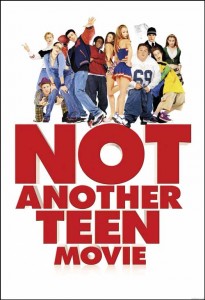 Matt Wrather: Wait. Are you actually making the argument that Deadpool would have been better had it been more like Not Another Teen Movie?
Matt Wrather: Wait. Are you actually making the argument that Deadpool would have been better had it been more like Not Another Teen Movie?
Belinkie: Well, it might have been more INTERESTING if it were more like Not Another Teen Movie. Pete’s wondering what Deadpool means for the ongoing onslaught of superhero films. I don’t think Deadpool is looking to explode our model of the superhero movie (after all, it’s a 20th Century Fox movie that exists within the X-Universe).
I expected the movie to be a spoof, and I don’t think it qualifies. Pete mentioned The Naked Gun and Robin Hood: Men In Tights. This doesn’t feel like those. At the same time, there are moments that seem to be almost that broad. For instance, Colossus’s inspirational speech at the end, which is interrupted mid-sentence by Deadpool blowing the villain’s brains out.
 Wrather: Yeah. To me, this was kind of a course-correction, akin to what happened in the Disney-MCU with Guardians. A lot of the mainline superhero stuff is excessively solemn; very sanctimonious. And this sort of function to subvert and deflate.
Wrather: Yeah. To me, this was kind of a course-correction, akin to what happened in the Disney-MCU with Guardians. A lot of the mainline superhero stuff is excessively solemn; very sanctimonious. And this sort of function to subvert and deflate.
I think there are ways to show the wires—ways to expose the machinery working at the heart of the genre—that actually doesn’t make the claim, “this is all kind of worthless because it’s so ridiculous.” But in a certain way actually manages to honor the ideas of the genre—in some ways actually more faithfully. And one of those things is fun: The X-movies are (all? since X2 maybe?) kind of a drag. For what it’s worth, this is of a piece with the historical function of meta-theatricality: undermine the dominant paradigm.
Fenzel: With regards to satire – and I know you all have some comedy theory under your belts of different sorts – it’s odd that satire in our political discourses is associated with liberalism and change, when the function of comedy is to some degree conservative by nature. Of course when you think about it, the notion that conservatism in our discourse is about things staying the same and liberalism is about things changing is just obviously not what is happening (just looking at things like privatization or No Child Left Behind), but it’s still easy to fall into that paradigm. And of course in the past we have to acknowledge the role of comedy in facilitating liberalization and change, by, say, mocking authority figures.
But at the same time, people only really laugh at things they share, even if they’re new things. If a joke is just totally foreign or against their way of life or doesn’t feel honest to them, they won’t laugh. Comedy usually is about noticing something everybody already knows or thinks, and then confirming it in a surprising way. Jon Stewart may speak truth to power, which is liberalizing, but he also preaches to the choir, which is inherently conservative (in the functional use of the term, not the contemporary political).
 So, on one hand, satire gives people discursive technologies of power against institutions and ideas that are oppressive. On the other, it reconfirms for people things they already know or feel. If they don’t on some level agree with it, they don’t laugh.
So, on one hand, satire gives people discursive technologies of power against institutions and ideas that are oppressive. On the other, it reconfirms for people things they already know or feel. If they don’t on some level agree with it, they don’t laugh.
I guess I’m describing a chicken and egg situation regarding Deadpool, and I’m leaning toward the chicken. That the things that Deadpool satirizes about superhero movies are not new insights, and they’re not creating a new front of attack against them. They are responding to ideas that are already out there, that people already think.
In that way it is sort of like relationship counseling. Like, the hard idea of satire as a vehicle for social change depends on this idea that if you have a big problem in a relationship, you should break up. Whereas Deadpool is more saying “Let’s express how we feel without judgment, because we are committed to these movies continuing.”
Maybe that’s part of why it helps that he’s breaking the fourth wall. The metaphorical footlights give Deadpool a safe space to talk about his feelings without having to say them to Captain America or Nick Fury (or Hugh Jackman as Wolverine, more rights-constrainedly) directly in front of everybody and force consequences from them.
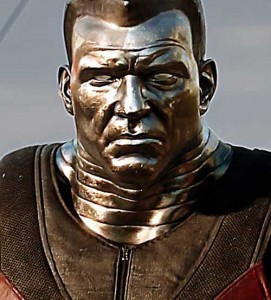 Similarly, it’s really funny just how much Colossus is willing to forgive in his hope that Deadpool can be a superhero like him, and how far he is willing to take that game of forgiveness, up to his big speech about the three or four moments that are all a hero needs or gets: “Look how incredibly low my expectations are! Look how far past halfway I’m willing to come in compromise! Give me credit for what I’m willing to do for you!”
Similarly, it’s really funny just how much Colossus is willing to forgive in his hope that Deadpool can be a superhero like him, and how far he is willing to take that game of forgiveness, up to his big speech about the three or four moments that are all a hero needs or gets: “Look how incredibly low my expectations are! Look how far past halfway I’m willing to come in compromise! Give me credit for what I’m willing to do for you!”
Colossus has seen Deadpool murder a whole lot of people. Professor X has to seriously wrack himself with pain and guilt to hold out hope for Magneto under these sorts of circumstances. But Colossus is more just tired and a frustrated in a venal, parental way.
I guess what I mean is that this movie isn’t really indicting anybody. It’s hugely forgiving, both in-universe and meta-structurally. And maybe that’s why it might seem toothless if what you expect from satire is a real hard-edged commitment to change.
Belinkie: It’s possible I fundamentally misunderstand the nature of satire. I’m assuming that satire always comes from a place of criticism and scorn. You satirize what you can’t stomach. I think that’s true sometimes. Duck Soup is a satire of politics and war, and it’s pretty harsh. On the other hand, I’d say the South Park movie is a satire of musicals, but they clearly LOVE musicals to death. It’s a satire from a place of love and respect.
Fenzel: I definitely think different people have different ideas of satire. I’ve come across people in comedy who think satire must be about current events and current political questions, or else it’s a different category. I don’t agree with it, but I go the other way with it and see satire as a very broad “genre.”
I guess one question this raises is whether or why you would criticize and scorn something you like. I don’t know about y’all, but what I “can’t stand” in practice, emotionally, tends to vary a lot, depending on my mood. There are certainly things I like that I can’t stand sometimes. The idea that there are things we like and want to support and things we dislike and want to destroy is fairly common, but it doesn’t match with experience.
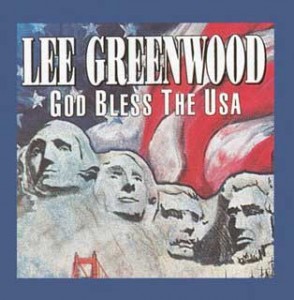
Fun fact: this karaoke song inspired the original “earony” conversation.
Belinkie: You and I have agreed to disagree about the existence of earony.
Fenzel: Yeah, I don’t see a single contiuum for irony and earnestness. To me, an increase in one can come without decreasing the other. Whereas you see them more in conflict with each other, more of a zero-sum game. So it’s more plausible to be “between them.”
Jordan Stokes: I was under the impression that satire didn’t even have to be funny: that the necessary quality is abuse, and humor is a means to that end. (So diss tracks are satires — and yeah, they’re often funny, but not always.)
This is a separate issue from the “scorn vs. affection” question, though, because obviously you can insult things that you don’t have a real grudge against. (Diss tracks are a helpful example, actually. You might think that non-comedic satire would always be sincere, because if you’re not saying these things to get a laugh, and you don’t really mean them, why bother saying them in the first place? The answer, just as with comic satire, is to get a reaction from the audience: it’s just that in this case the reaction isn’t comedic.)
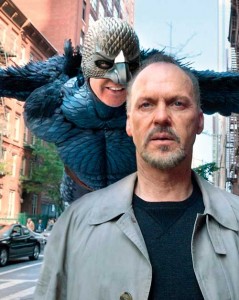 For a non-comic satire of superhero movies, see Birdman. It has a lot of funny moments, and some parodic moments, but it’s not really a comedy, and it’s not really a parody. Parody and comedy are just arrows in its satirical quiver: it also has scenes where people sit around having intense conversations about how dumb superhero movies are.
For a non-comic satire of superhero movies, see Birdman. It has a lot of funny moments, and some parodic moments, but it’s not really a comedy, and it’s not really a parody. Parody and comedy are just arrows in its satirical quiver: it also has scenes where people sit around having intense conversations about how dumb superhero movies are.
It seems like Deadpool isn’t satirizing superhero movies as a whole, but rather is singling out certain specific conventions of the superhero movie, and saying that these things are stupid.
Stokes: Which does make it a fainthearted satire, but in a different way than I think y’all were suggesting. Like, imagine the movie is a hotdog cart. Matt, you seem to be complaining that the movie didn’t try to set the hotdog cart on fire. Pete, you seem to be holding up an alternative model of satire, where Ryan Reynolds comes up to the hotdog vendor and says, “look, I think you’re basically doing great work, but I have a list of grievances which I’d like to have a mature conversation about, with the understanding that nothing will probably change.” But if you like the hotdogs, and hate the mustard, couldn’t you just set the mustard on fire?
 Basically my point is that I skipped lunch today and want a hotdog.
Basically my point is that I skipped lunch today and want a hotdog.
Belinkie: But there’s another possibility: Deadpool doesn’t think ANY of the conventions are stupid. It thinks they’re all wonderful and it expresses love through mockery. I can identify with that.
Stokes: Hmm. Yeah, okay. But I think there’s still a distinction to be made between the conventions that we love through mockery, and the ones that we’re not willing to mock at all.
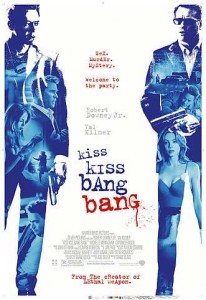 So going back to Kiss Kiss Bang Bang for a minute (because that movie is so, so good, and I don’t want to pass up a chance to talk about it), almost every aspect of film noir and of the modern crime movie gets lovingly mocked. But bromance is not mocked at ALL. Bromance is the big redemptive force, the vaunted “heart” to the film that provides nuance and humanity to everything that might otherwise end up making it alienating and confounding.
So going back to Kiss Kiss Bang Bang for a minute (because that movie is so, so good, and I don’t want to pass up a chance to talk about it), almost every aspect of film noir and of the modern crime movie gets lovingly mocked. But bromance is not mocked at ALL. Bromance is the big redemptive force, the vaunted “heart” to the film that provides nuance and humanity to everything that might otherwise end up making it alienating and confounding.
Do you feel like there’s something parallel in Deadpool? A quality of “heart,” i.e. a value that — precisely in that it is not mocked — the film seems to hold up as the central value of the genre?
Stokes: And if so, is it different from the redemptive cores of Guardians of the Galaxy (I’m gonna say “friendship”), Kick Ass (probably “physical violence as a pathway to spiritual elevation”), etc.?
 Wrather: I welcome any opportunity to talk about M. H. Abrams (author of The Mirror and The Lamp, from which book, if you ever learned anything about English Romantic poetry in high school, you learned it—in a more or less convoluted chain of apostolic succession depending on how old you are), who says in his Glossary of Literary Terms that the distinction between the comic and the satiric is “sharp only at the extremes.” So rather than arriving at a hard-and-fast definition, it’s more a factor-based test (actually kind of like the doctrine of Fair Use), where you have to weigh several elements against each other.
Wrather: I welcome any opportunity to talk about M. H. Abrams (author of The Mirror and The Lamp, from which book, if you ever learned anything about English Romantic poetry in high school, you learned it—in a more or less convoluted chain of apostolic succession depending on how old you are), who says in his Glossary of Literary Terms that the distinction between the comic and the satiric is “sharp only at the extremes.” So rather than arriving at a hard-and-fast definition, it’s more a factor-based test (actually kind of like the doctrine of Fair Use), where you have to weigh several elements against each other.
One of the things that Abrams point points out is that satire differs from other forms of comedy in that its “real” target exists outside the work (in a particular person or in human folly generally), whereas in most comedy the object of the laughter exists inside the work, and the laughter is an end in itself. So the work itself is necessary incomplete, in some sense—it exists in reference to some external element that needs to be understood in order for the work to be understood.
(This is obviously a continuum, because there are greater and lesser degrees of this kind of dependence, and there are greater or lesser degrees to which the understanding is crucial to understanding the work.)
The other thing that’s required is a sense of criticism, most often by derision, but as Jordan points out it doesn’t have to be derision. It can be more straightforward or aggressive.
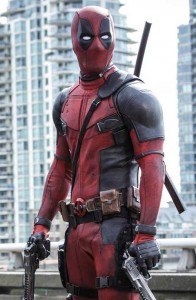 And I think the “non-satiric heart” that Jordan is looking for kind of has to exist, if those two factors exist, for two reasons: First, there needs to be a basis in authority for the criticisms a satirical work makes about its object. Second, satire is open to charges of scurrilous mean-spiritedness (indeed, “satirical” can be a pejorative term, as in Hamlet, when the prince says to Polonius, who as asked what he is reading, “the satirical rogue says here that old men have grey beards, that their faces are wrinkled…”), and one of its defenses against those charges is a claim to hate the sin but not the sinner. Only misdeeds, or aspects of a person capable of being rectified—not, say, a grey beard or a wrinkled face, which can’t be helped—are legitimate targets. And this requires a sort of moral sincerity, since one of the most straightforward ways of Not Being An Asshole is to care about something sincerely.
And I think the “non-satiric heart” that Jordan is looking for kind of has to exist, if those two factors exist, for two reasons: First, there needs to be a basis in authority for the criticisms a satirical work makes about its object. Second, satire is open to charges of scurrilous mean-spiritedness (indeed, “satirical” can be a pejorative term, as in Hamlet, when the prince says to Polonius, who as asked what he is reading, “the satirical rogue says here that old men have grey beards, that their faces are wrinkled…”), and one of its defenses against those charges is a claim to hate the sin but not the sinner. Only misdeeds, or aspects of a person capable of being rectified—not, say, a grey beard or a wrinkled face, which can’t be helped—are legitimate targets. And this requires a sort of moral sincerity, since one of the most straightforward ways of Not Being An Asshole is to care about something sincerely.
So there are still a number of open questions. I guess one of the least interesting is “Is Deadpool a satire?” because it hinges largely on definition of terms. But maybe, “Would Deadpool have been a better movie if it had been more like a Zucker Brothers movie?” I gotta say “no” on that one, though I love Airplane and Airplane 2.
 As to, “What is the non-satirical beating heart of Deadpool,” it’s actually really old fashioned: it’s (unconventional, a tiny bit deviant, very self-conscious, but still pretty old-fashioned) love. The whole movie is a quest to un-uglify himself so he can be with his girl without grossing her out. (This involves a number of mistaken assumptions on his part, and the whole conflict of the movie could be fixed with a 30-second conversation, which they eventually have after all the explosions have died down.) But it’s sort of a “be worthy of my lady fair” quest story.
As to, “What is the non-satirical beating heart of Deadpool,” it’s actually really old fashioned: it’s (unconventional, a tiny bit deviant, very self-conscious, but still pretty old-fashioned) love. The whole movie is a quest to un-uglify himself so he can be with his girl without grossing her out. (This involves a number of mistaken assumptions on his part, and the whole conflict of the movie could be fixed with a 30-second conversation, which they eventually have after all the explosions have died down.) But it’s sort of a “be worthy of my lady fair” quest story.
You know, the other thing that it takes seriously is its own pop culture obsession and knowledge, and a certain amount of showy virtuosity in how it’s written and shot.
A different movie—a different kind of movie—would be really concerned with flagellating itself for liking the things it likes. I seem to remember Jason Reitman’s Young Adult being like this; the moral lesson was, “the things you think you’re good at are stupid, and also you’re not really that good at them.”
Fenzel: It’s also a movie about being worthy of love through healing and self-worth. Deadpool goes through a lot of humiliation in this movie at the hands of himself and others (like the scene where he breaks his bones punching colossus), and a lot of it is about how he forms a narrativized notion of himself that he thinks someone will love.
 Wade doesn’t leave Vanessa because he’s ugly; he leaves her because he doesn’t want her to take care of him through cancer, because he thinks being with him through that would make her life much worse – he literally doesn’t think he is worth caring for. His own internal ugliness and his subordination to it is personified in Francis, but ultimately what he finds out is that he was wrong about himself and wrong about what he was projecting onto Vanessa.
Wade doesn’t leave Vanessa because he’s ugly; he leaves her because he doesn’t want her to take care of him through cancer, because he thinks being with him through that would make her life much worse – he literally doesn’t think he is worth caring for. His own internal ugliness and his subordination to it is personified in Francis, but ultimately what he finds out is that he was wrong about himself and wrong about what he was projecting onto Vanessa.
Colossus offers him one path to worthiness, which is externalized and collective; he could become a hero of a very specific sort and be loved and accepted. But he refuses it and instead finds renewal in accepting himself as he is.
Deadpool is an “action movie where the hero and villain are mirror images of each other,” which is a whole class of movie, so I think that has to factor into its overall mission statement if it is to have one.
Belinkie: I came into Deadpool expecting a movie for people who think they’re too cool for school. But instead of a knowing smirk, I got real joy, and a sweet love story, and unabashed affection for the superhero genre… and a knowing smirk. And 93-year-old Stan Lee as a strip club DJ. Deadpool gets to have its cake and make fun of the cake too, which is a neat trick.
Need another lap in the Deadpool? Check out our Deadpostcast.
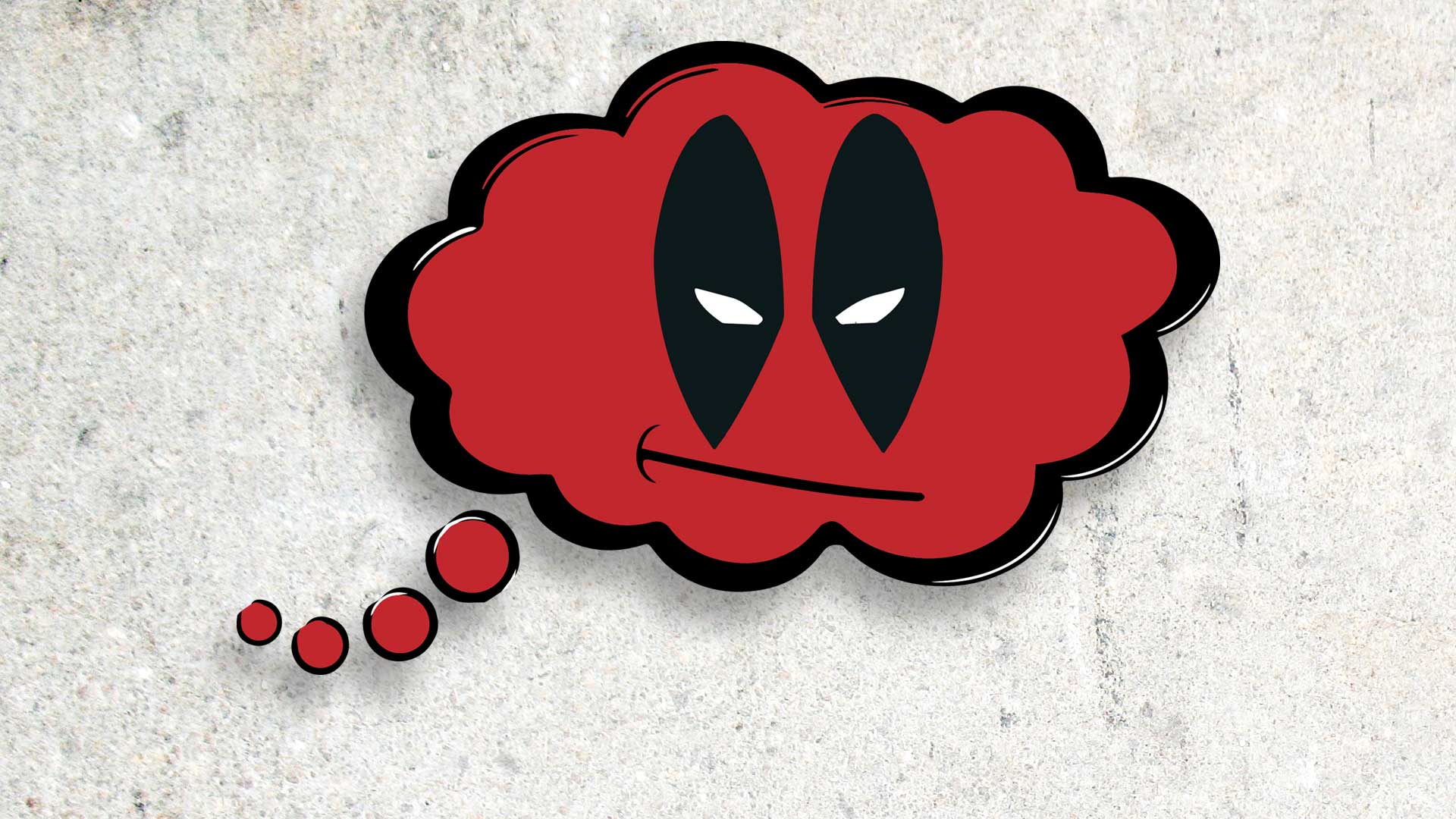
I know that I am stepping into a quagmire but I would argue that a genre trope of the superhero movie is mocking the genre.
Both “Avengers: Age of Ultron” and “The Incredibles” mock the evil villain monologue. “X-Men” (the first one) mocks the traditional yellow spandex of comic hero costumes. In “Spider-Man” Aunt May says “You aren’t Superman, you know.” 1966 Batman mocked all the classic comic tropes. “Guardians of the Galaxy” paraded mockery, but my favorite was “Now we are all standing up, are you happy?” “X-Men: First Class” mocked the recruitment montage by having Wolverine tell them to go f themselves.
This might be a different category, but even more serious superhero movies like “Superman: The Movie” and “Batman Begins” are responding to the meta-narrative of superhero movies. “Superman” did it with verisimilitude in the wake of ’66 Batman and “Batman Begins” did it with an attempt at realism in the wake of “Batman and Robin.”
The genre is rife with layers of commentary on itself, so I would say that that is a generic convention of “The Superhero Movie.”